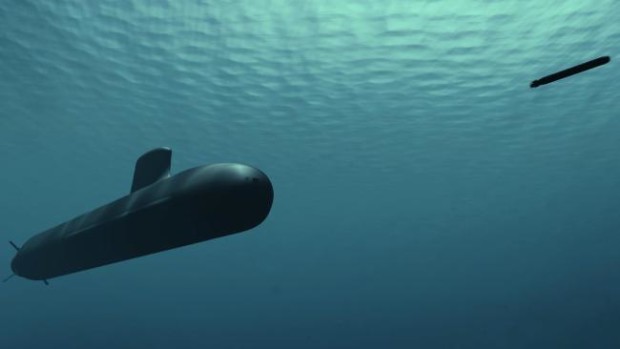
Australia has awarded a $39 billion contract to design and build that country’s next generation submarines to France’s DCNS. The French naval contractor, which offered the 4,700-ton Shortfin Barracuda (photo), outbid contractors from Germany and Japan. DCNS PHOTO
SYDNEY, Australia — French naval contractor DCNS Tuesday won a Aus$50 billion (US$39 billion) contract to design and build Australia’s next generation of submarines, beating competition from Germany and Japan in the country’s biggest ever defense procurement program.
The announcement by Prime Minister Malcolm Turnbull culminates years of planning to replace Australia’s ageing diesel and electric-powered Collins Class submarines, which are due to leave service from around 2026.
Turnbull said the 12 new subs “will be the most sophisticated naval vessels being built in the world”.
“The recommendation of our competitive evaluation process… was unequivocal, that the French offer represented the capabilities best able to meet Australia’s unique needs,” he added in Adelaide, where the submarines will be constructed.
“This is a momentous national endeavor. This is securing together with our commitment to surface vessel construction, this is securing the future of Australia’s navy, over decades to come.”
Turnbull said he had spoken to French President Francois Hollande to inform him of the decision.
A Japanese government-backed consortium led by Mitsubishi Heavy Industries, and German group ThyssenKrupp Marine Systems were also in the running.
Besides matching the range and endurance of the Collins Class, the new generation of subs needed to offer superior sensor performance and stealth capabilities.
DCNS has said it planned to build a 4,500-tonne conventionally-powered version of its 4,700 ton Barracuda, to be named Shortfin Barracuda.
It believed its design was the most advanced, with a pump-jet propulsion system it said was much quieter than a propeller, making the submarine harder to detect.
The tender process has been politically sensitive, with Canberra keen to maximise Australian industry involvement and jobs. There were fears that any off-the-shelf purchase could kill off the domestic shipbuilding industry.
“This a great day for our navy, a great day for Australia’s 21st century economy, a great day for the jobs of the future,” said Turnbull.
“Australian built, Australian jobs, Australian steel, here right where we stand.”